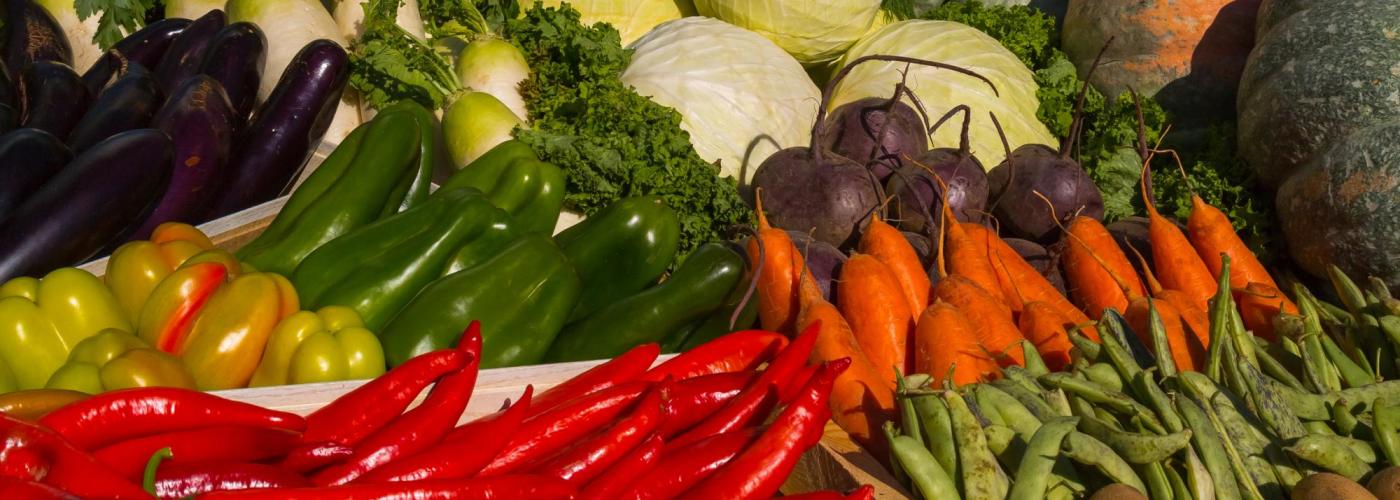Food Safety - Now More than Ever
Image

Urgent Need to Strengthen and Protect Food Supply Chains in the Face of COVID-19
This post was prepared by Food Enterprise Solutions (FES) Team Members Arielle Kleinman, Roberta Lauretti-Bernhard, Russ Webster, and Thoric Cederström.
The current coronavirus pandemic (COVID-19) is a fluid situation that is fueling a livelihoods crisis in both developed and emerging economies. Globally, consumers are concerned about the safety of their food and the risk of potential contagion. Though COVID-19 is a respiratory infection transmitted typically from person to person through direct contact, food systems are likely to be negatively impacted as they include human as well as surface transmission through critical actors, including food producers, processors, transporters, warehouses, wholesale and retail food providers, and, of course, the consumer. Further, there is some evidence that the virus can remain stable and viable on hard surfaces, such as plastic and stainless steel, for up to 72 hours even under refrigeration (NIH - New Coronavirus Stable for Hours on Surfaces)
In this regard, the COVID-19 pandemic underscores the urgent need to implement “best” food safety practices and technologies along supply chains serving the world’s consumers that are already at risk of poor health from hunger and malnutrition. The added threat of a highly contagious coronavirus amplifies the severity of these pre-existing food safety-related health problems, creating a multiplier effect in communities already suffering from poor nutrition, food-borne illnesses, and hunger.
Further, because food enterprises, specifically small and growing businesses (SGBs), are primary sources of employment and income across the globe – 90 percent of the workforce, for example, in Africa – an investment in good food safety practices will have a positive impact on reducing the spread of COVID-19. SGBs are on the front line serving formal markets through complex supply chains for millions of consumers and can have positive impacts on behavior change in at-risk communities.
Food Enterprise Solutions (FES) was founded with the mission to support improvements throughout food systems in emerging markets and developing countries so that all consumers can have access to safe, nutritious, and affordable food choices. FES focuses on SGBs, the key actors in those systems, that provide vital linkages between producers and consumers. Across the globe, these SGBs face numerous constraints (cost, knowledge, motivation, insufficient infrastructure and equipment, etc.) and challenges to managing their businesses profitably while delivering sound, quality products to the marketplace. These challenges range from a lack of supporting infrastructure (transport networks, energy, clean water) and affordable financing to an inconsistent regulatory environment that, at best, does not incentivize or reward good practices in the processing, storage, distribution, and sale of food products.
To exacerbate existing challenges, SGBs are now facing the COVID-19 pandemic, which not only puts an economic strain on business through increased costs and reduced income, but concurrently amplifies the need for both systematic safe handling of food and implementing social distancing to decrease the spread of respiratory illness. COVID-19 has created a heightened awareness of the seriousness of “safety hygiene” in general, whether airborne or foodborne. Within the food system many of the “standards of operation” (SOPs) to prevent foodborne illnesses are the same for reducing respiratory illness: use of masks and gloves when handling food or food products, hand washing, disinfecting surfaces, restricting food prep areas to trained personnel, etc. Therefore, good food safety practices – hand washing, hairnets, face masks, and proper hygiene of food handling, packaging, and storage – are more important now than ever for preventing the spread of COVID-19 within SGBs and to their customers. If food is managed according to best practices, foodborne exposure to this virus should not be a route of transmission (FDA - Food Safety and the Coronavirus Disease 2019).
In order to optimize food safety in local supply chains, SGBs need to be supported to embrace standards of food safety and food handling practices so that they are better equipped to prevent contamination, thus better-protecting consumers. Appropriate standards to the local context will specify food handling controls related to the receipt, storage, processing, display, packaging, transportation, disposal, and possible recall of food. Other requirements must relate to the skills and knowledge of food handlers and their supervisors, the health and hygiene of food handlers, as well as the cleaning, sanitizing, and maintenance of food facilities and equipment.
For many SGBs in emerging markets and developing countries, adhering to these standards can be daunting without external support. FES provides technical assistance, training, and informational support to SGBs to embrace food safety standards and to implement best practices. These SGBs are better equipped to operate more efficiently and safely, reducing the risk of foodborne pathogens while concurrently reducing the risk of spreading COVID-19.
The current crisis highlights the fragility of food systems in emerging economies where food losses (pre-consumer) are high and contamination from foodborne pathogens puts consumers at risk of poor health and a reduced ability to fight infections. Increased consumer awareness, heightened by the pandemic, is growing the demand for safe foods. This growing demand requires a supply chain/food system that can produce and deliver safe foods. SGBs can be agents for good or bad food depending on their food safety practices. Investing in SGB actors to make improvements has a dual benefit of improved food safety and reduced risk of COVID-19. If countries can invest in and implement appropriate food safety standards, this will help reduce the spread of foodborne diseases and increase community awareness about and practice of hygiene measures that mitigate transmission of COVID-19.
Food Enterprise Solutions is USAID's implementing partner for Feed the Future's Business Drivers for Food Safety program to accelerate the adoption of food safety practices and technologies among formal and informal businesses in emerging economies.


